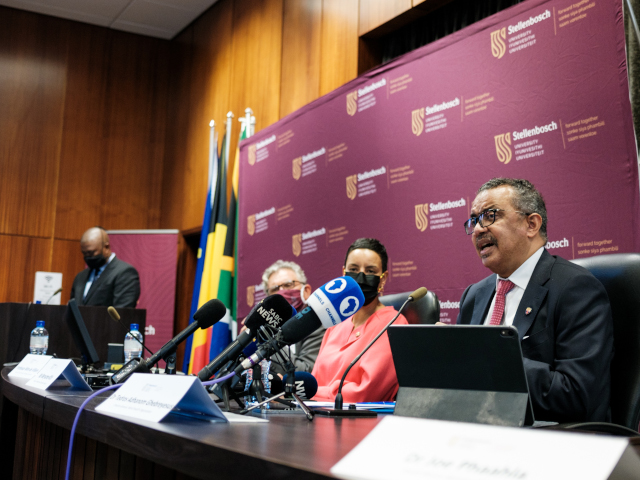Business News sponsored by the Samsung Galaxy S22 series:
The Centre for Epidemic Response and Innovation (CERI) at Stellenbosch University (SU) recently received international acclaim when its work on identifying and tracking Covid-19 variants was listed as one of the 10 technological breakthroughs of 2022 by the prestigious MIT (Massachusetts Institute of Technology) Technological Review.
The annual list highlights the top technological advances – from medicine to energy to digital technologies – that will have the biggest impact on the world in the years to come. Every year, the magazine’s reporters and editors survey a wide range of topics and then select advances that will affect our lives in meaningful ways.
Headed by world-renowned bioinformatician Prof Tulio de Oliveira, CERI – to be officially launched later this year – has been at the forefront of pathogen genomics surveillance to enhance biomedical discovery and to respond effectively to epidemics. The type of surveillance being done at CERI helped South African scientists to quickly spot and warn the rest of world about the Beta and Omicron variants of SARS-CoV-2.
Commenting on the global recognition that CERI has received, De Oliveira, who is also a professor of bioinformatics at SU’s School for Data Science and Computational Thinking, the Faculty of Science and the Faculty of Medicine and Health Sciences, said, “We felt very honoured to be listed as the main group leading genomics surveillance of Covid in the world, which was selected as one of the ten breakthrough technologies in 2022 by MIT as I like to believe that MIT knows a little bit about cutting-edge technologies.
“As part of this process, we also received a visit of a photographic crew from MIT. They were very impressed with our new state-of-the-art data and genomics facilities in South Africa and featured the new Biomedical Research Institute (BMRI) of Stellenbosch University in its feature piece on genomics surveillance.”
Echoing De Oliveira’s sentiments, Prof Kanshu Rajaratnam, Director of the SU School for Data Science and Computational Thinking, commented, “SU has been intentional about providing multidisciplinary solutions to large problems. This honour is a great example of outcomes due to this multidisciplinary world that Prof De Oliveira operates in. CERI would operate in a multidisciplinary space to help Africa in its future epidemic response.”
Envisioned to be the largest genomics facility in Africa, CERI also provides capacity building to other African countries as part of its support programme to the Africa Centres for Disease Control and Prevention (Africa CDC) and the World Health Organisation (WHO). CERI has already received fellows from 21 African countries to be trained in genomics, bioinformatics, big data and artificial intelligence analysis. CERI’s last call for fellows received over 200 applicants.
Last month, a high-level international delegation, led by the WHO director-general, Dr Tedros Adhanom Ghebreyesus, visited SU’s Tygerberg Campus, and specifically the BMRI and CERI. In addition to genomics surveillance, CERI is also a partner-member of the South African mRNA Vaccine Consortium (SAMVAC), selected by the WHO to become the first Covid mRNA Vaccine Technology Transfer Hub.
In January, President Cyril Ramaphosa and the biotech investor of NantAfrica (a division of NantWorks), Dr Patrick Soon-Shiong also paid CERI and the BMRI at the Faculty of Medicine and Health Sciences a visit to view its cutting-edge facilities. Regarding these high-level visits, De Oliveira says, “It is fantastic to see that the R1,5 billion investment of Stellenbosch University on its campus is attracting international attention. We are very proud to be part of this and will work hard to help South Africa and Africa to continue to be listed as a top technological setting in the world.”
- Read the MIT Technology Review article, “Top Breakthrough Technologies of 2022: How tracking coronavirus variants will prepare us for the next global public health threat”, here.
Image: Prof Wim de Villiers (SU Rector and Vice-Chancellor, Stellenbosch University); Meryame Kitir (Belgium’s Minister of Development Cooperation) and Dr Tedros Adhanom Ghebreyesus (Director-General, WHO).






